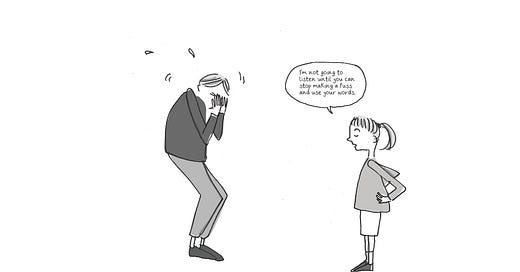Parents sometimes say to me, but behaviourism seems to work. Shouting at my children is the only thing which stops them hitting their sister. Threatening to take away their iPad works like nothing else.
Behaviourism does work on its own terms. That’s why it’s so popular and why it continues to be used. Behaviour does change when children (or adults) are scared enough of the consequences. A class of children who are scared of missing their playtime if they get moved off the Sun to the Raincloud might well be quieter than a class who don’t have a public behavioural chart on their wall.
However, behaviourism is a (very) limited way of looking at children. Controlling behaviour through fear is not the same as children learning to behave. Behaviour charts don’t ask why a class might be behaving the way they are – they instead use fear and shame to control their behaviour.
In the real world, a child’s reasons for behaving the way they are do matter. ‘Bad behaviour’ can have a whole set of different reasons and if we aren’t curious about the reasons, then we risk making things worse. Sometimes behaviourist approaches try to eliminate the visible behaviour, without understanding either the context or the invisible reaction which is driving it. This means that behaviourism can have hidden consequences, even whilst it appears to ‘work’.
Eliza Fricker (Missing the Mark) and I go into this a lot more in our Art of Low Demand Parenting: Behaviour webinar which is half price (along with all the other Art of Low Demand Parenting webinars) until Sunday 19th Nov.
Please share if you know parents who might benefit.





I absolutely love so much of your work, and I agree with your basic values when it comes to how we should treat children. But I have to protest, if just a little bit, when it comes to this use of the word behaviorism. One of the classic books in the field is Murray Sidman's Coercion and its fallout, published in 1989, and the title says it all. Skinner himself was pretty clear about coercion being mostly to be avoided. Sure, there's been tons of bad things done in the name of behaviorism. But that's the case in almost any field that works with kids. I don't mind if someone doesn't like behaviorism as a field and as an idea, but reducing it to something it isn't doesn't seem very helpful. Are people who work within the ABA framework just beyond the pale? I know some of them, and they agree pretty much to all you say in these posts.